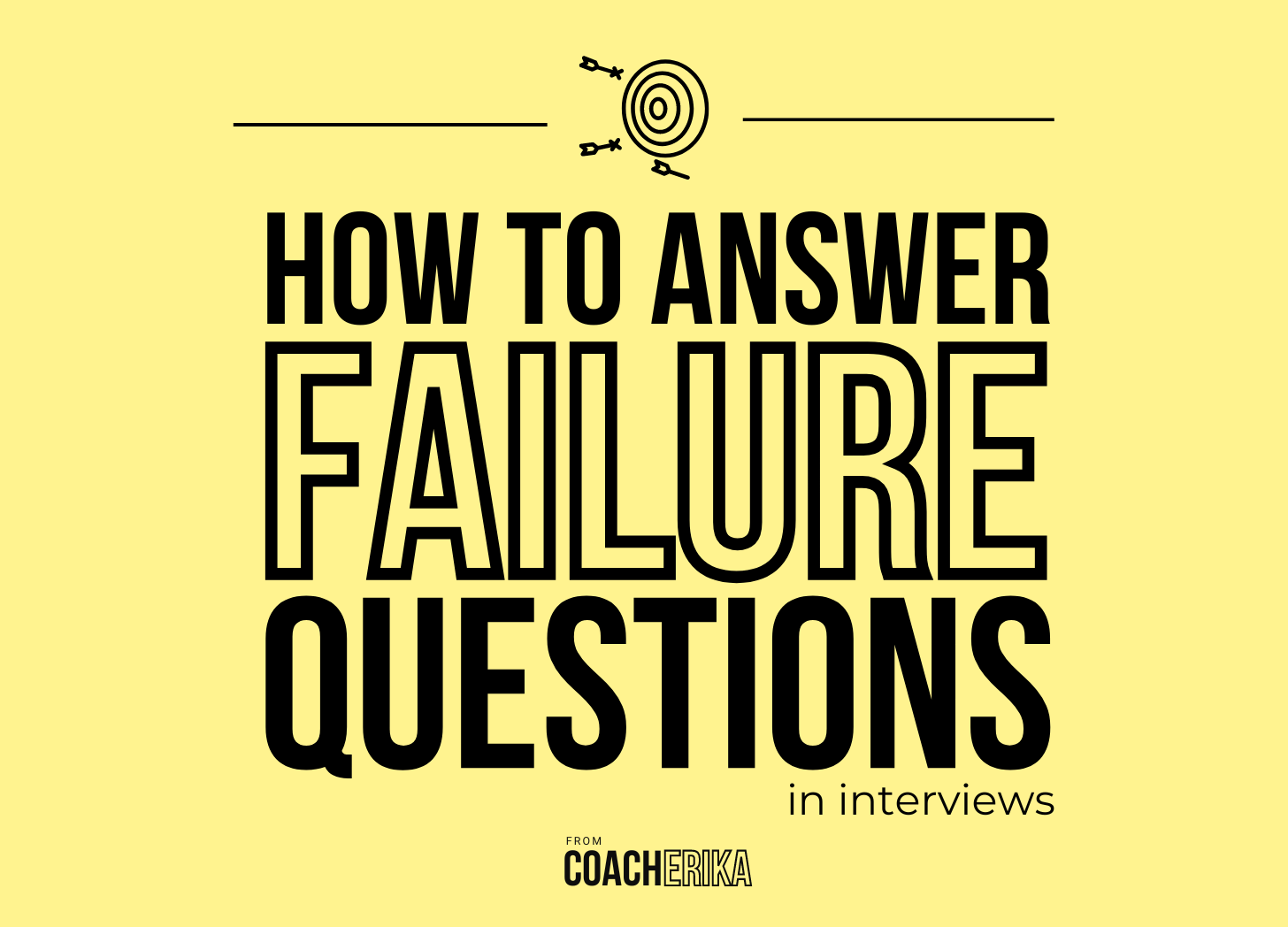How to answer the failure question in interviews
The context is the failure. The context is the failure. The context is the failure. Adopt this new mantra and you're starting on the right foot.
👋 Hey, it’s 📣 Coach Erika! Welcome to a 🔒 subscriber-only edition🔒 of The Career Whispers. Each week, I tackle reader questions about tech careers: how to get one, how to navigate them, and how to grow and thrive in your role.
Become a subscriber to get access to all 3-7 monthly posts, across these thoughtfully crafted career experimentation series:
JOB SEARCH DIARIES
THE WEEKLY WHISPER
DEBUGGING YOUR JOB SEARCH
MVIP (MINIMUM VIABLE INTERVIEW PREP)
CLEVER GUERRILLA
BONUS EDITIONS and more (see all the paid subscriber benefits here)
This newsletter is an educational resource and can likely be expensed through your manager or your company's L&D budget. Here is a template I wrote for you to use when asking your manager. For subscription details, see the About page.
I’ve missed you all. It’s been a while since my last post, and I appreciate you all for sticking with me and supporting the newsletter. I have drafted a lot of new content but haven’t had the time to get from draft to production-ready (life has been bumpy, I may share more on that once I’m through the tunnel). I have a lot of fresh new content staged, all of it comes directly from questions and frameworks I’ve developed in my 1:1 coaching and real questions from people who are actively navigating their tech careers. As always, please comment or email me with any post ideas or questions you have: you’d be surprised how many of those comments and emails turn into draft posts for the newsletter!
Today’s post will teach you how to confidently answer the trickiest and most dreaded interview question: the Failure question.
“Tell me about a time you failed?”
Even hearing that makes most candidates nervous. And it should! Failure questions are tricky in countless ways, but there is a winning formula that will earn you a thumbs up and keep you in your power in any interview.
Five keys to nailing the Failure Question:
Pick an example that doesn’t reflect poorly on your core skills or judgment. Unknowable unknowns, black swan events, and industry-wide outages are often good targets.
The context IS the failure. Your story should not be a story of failure. It should be a story of recovery. Start with the failure; end with success.
Spend most of the time describing how you recovered the situation and set things back on track.
Share positive results from both a short-term lens (fixing the situation) and a long-term lens (strategic impacts)
Share what you learned from the experience. Interviewers should walk away seeing you as a living, learning growth machine.
Let’s dive in.
Q: How do I answer interview questions about failures in my career?
Failure questions are make-or-break interview questions that every candidate should be prepared to answer. All too often, I work with candidates who have only prepared for the happy path of interview questions, ie “tell me about a time you were awesome and where things went swimmingly.”
When I ask them a failure question, things often fall apart, even with candidates who were acing the interview until that point.
When you get a failure question in an interview, it’s not enough to know the CAR or STAR framework to answer behavioral questions. You need to be comfortable addressing failure in general.
Here’s my tested, trialed, and proven framework for failure questions:



